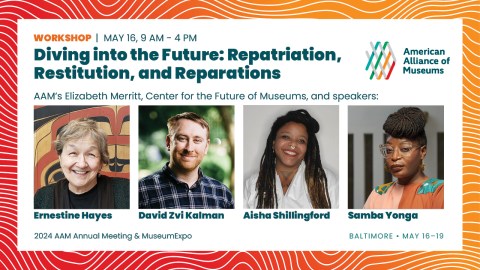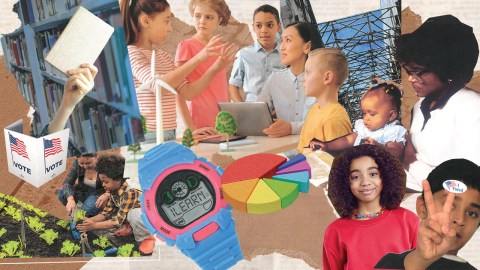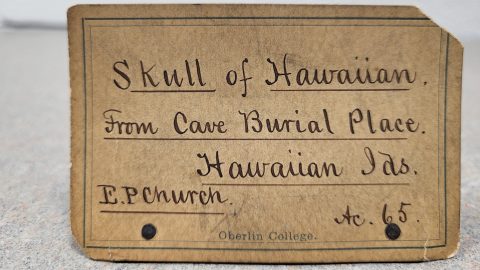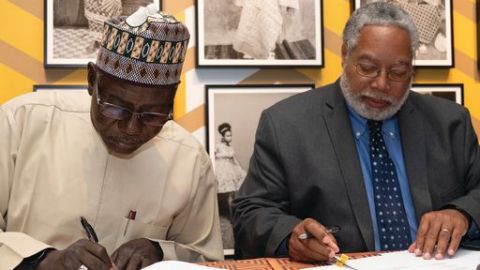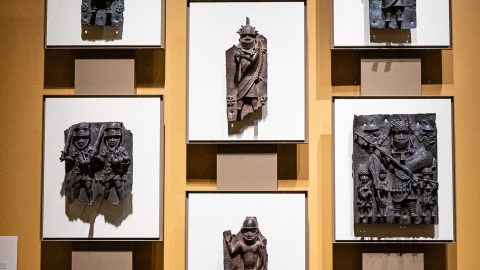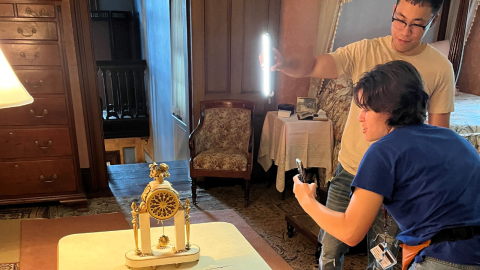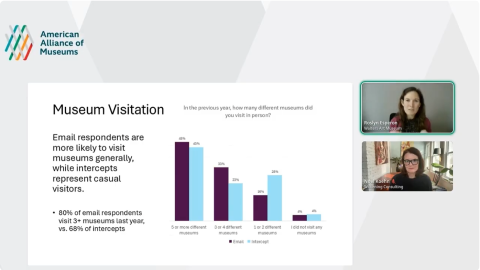-
Consensual Curation and Our Common Future
The best thinking about potential futures explores the full span of the Cone of Plausibility. By expanding our understanding of what is possible, we expand our choices regarding what is preferable. Today on the blog, Tamara Serrao-Leiva, … -
Join Me to Create a Future of Reparative Practice at AAM 2024
It’s 2044, and around the nation, and throughout the world, US museums are seen as valued stewards and honored partners in the critical work of supporting communities and preserving cultural heritage. In that future, we’ve worked through … -
Uncovering Future Artifacts: Come Play
Museums sit at the balance point of past and future. Most often they apply their scholarship and curiosity to exploring things that have actually happened, but museums can flip that lens to peer forward in time to explore possibilities as … -
When the Ancestors Call to You
When we think about barriers to change, practical issues like time, money, and legal issues often are top of mind. This can be true, for example, when museums talk about repatriation, whether voluntary or mandated by law. But often the … -
Handling, Storing, and Displaying Ammunition in Museums
The following information was developed with the assistance of David Kennedy, Curator of Collections and Exhibits, United States Marshals Museum There are many museums and historic houses and sites that hold weapons and the corresponding … -
Managing Copyright Issues From Acquisition to Exhibition
This webinar organized by CSAAM (Collections Stewardship Professional Network of the American Alliance of Museums) and OCEAN (the Open Copyright Education Advisory Network) discusses the practicalities and current situations you may … -
Remarks from Benin Bronzes Repatriation Ceremony
On October 11, 2022, the Smithsonian’s National Museum of African Art hosted a repatriation ceremony in which officials of the museum transferred ownership of twenty-nine Benin bronzes and the National Gallery of Art transferred ownership … -
The Uses of Discomfort: LGBTQ Collections Their Repositories and Their Legacies
People left out of traditional cultural narratives are forced to become the custodians of their own histories. For queer institutions, this means collecting stigmatized materials that other institutions may find irrelevant. Changing this …
Collections Stewardship
Latest Stories from AAM
Five Ways to Get Started with Accessibility When You Feel Stuck
Category:
Alliance Blog
When I started in museums, it wasn’t my plan to work in museum education and customer …
Museums and Healthcare Partnerships: A Practical Tipsheet for Starting the Conversation
Category:
Health
This tipsheet was created with the help of Microsoft Copilot and is informed by content …
Capturing Feedback from Visitors in Museum Spaces
Category:
On-Demand Programs
In this friendly, practical conversation between Noël Koehn, Sr. Consultant with …


